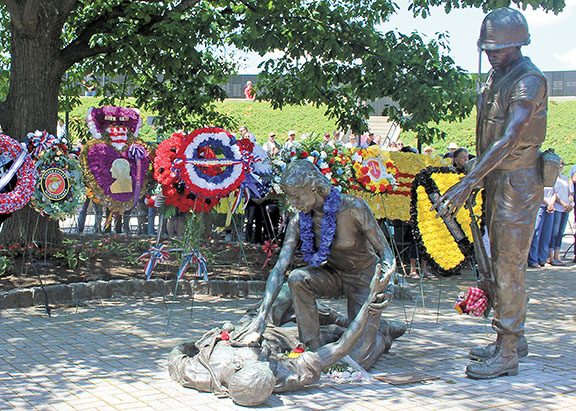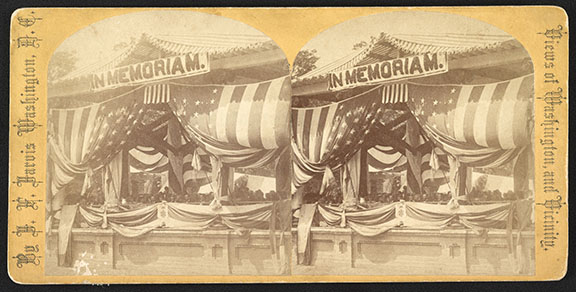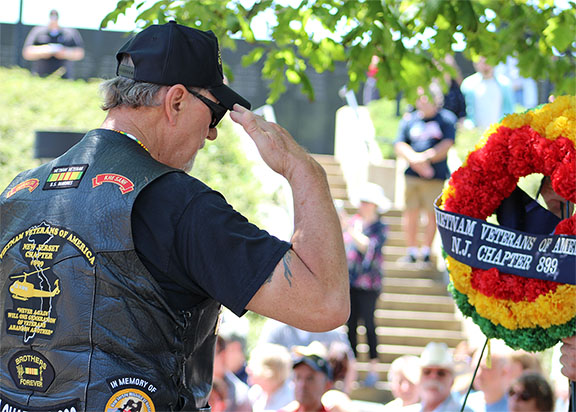
By Melissa Ziobro
Many consider Memorial Day Weekend the unofficial start to summer. Here at the Shore, it especially makes sense. The weather is warming. School is nearing an end. Most beaches will have lifeguards for the first time in the season. And many people will enjoy a three-day weekend away from work.
That three-day weekend dates to 1971, when Memorial Day was first celebrated as a federal holiday the last Monday in May. It is “the day we remember all those Americans who made the ultimate sacrifice in our nation’s wars,” Army Historical Foundation chief historian Matthew Seelinger explained. “However, we need to remember this is not a day to honor everyone who served in the armed forces – that is Veterans Day, Nov. 11.”
The history of Memorial Day as a time to remember military personnel who died for the country stretches back more than a century prior to its designation as a federal holiday. Pinning down an exact date and birthplace can be a bit complicated and would take more space than we have here, but Memorial Day as we now know it derives from the “Decoration Days” many communities organized following the American Civil War. That war killed some 620,000 Americans, and many, from the North and South, took to gathering to decorate the graves of soldiers with flowers, wreaths or flags. Formerly enslaved African Americans in Charleston were among some of the first to decorate the graves of Union troops in honor of their sacrifice.
Decorating graves with flowers in general is not a uniquely American tradition; the practice can be traced back thousands of years in different cultures across the globe.
It may be said that John A. Logan, a Civil War veteran and a founder of the Union veterans group known as the Grand Army of the Republic (GAR), formalized the grassroots practice when he called for May 30, 1868 to serve as a day to decorate the graves of Union troops across the nation. See more about the origin story of Memorial Day at archives.gov/news/topics/memorial-day.
As time went on, Memorial Day became a “more general remembrance than the first Decoration Days, in which citizens decorated the graves of the Civil War dead,” explained Christopher DeRosa, Ph.D., chair of the Department of History and Anthropology at Monmouth University. It has become “a valuable occasion to cherish the lives soldiers paid to preserve our democratic society” at any point in our nation’s history.
In 1968, Congress passed Public Law 90-363, commonly referred to as the Uniform Monday Holiday Act. This Act, among other things, set the observance of Washington’s Birthday as the third Monday in February, Memorial Day as the last Monday in May (instead of May 30), Independence Day as July 4, Labor Day as the first Monday in September, Columbus Day as the second Monday in October, Veterans Day as the fourth Monday in October, Thanksgiving Day as the fourth Thursday in November, and Christmas Day Dec. 25.
This purposely created five three-day weekends, something federal government employees and others, including those in the travel industry, had lobbied for. Veterans Day would be moved back to its original Armistice Day date, Nov. 11, in 1978.
Memorial Day’s move to the last Monday in May went into effect in 1971. That year, many veterans of the ongoing Vietnam War fought to ensure that Memorial Day, as part of a long holiday weekend, was not cheapened or commercialized; that its true meaning was not lost. They also wanted to ensure that the holiday did not romanticize making the ultimate sacrifice, but that it served as a clarion call for peace. Several hundred Vietnam veterans and supporters even staged a peace march centered on Revolutionary War sites in and around Boston that Memorial Day Weekend.

Library of Congress
You can ensure the meaning of the holiday weekend is not lost by attending any of the many parades, memorial ceremonies, cemetery cleanups, and other commemorations that will be taking place throughout the area. The New Jersey Vietnam Veterans’ Memorial Foundation (NJVVMF), for example, will be hosting its Memorial Day Ceremony May 30 for the first time since 2019. The foundation oversees the NJ Vietnam Veterans’ Memorial and the Vietnam Era Museum, both conveniently located off exit 116 of the Garden State Parkway. The NJVVMF ceremony will being at 11 a.m. All are welcome. The Vietnam Era Museum & Educational Center will be open to the public free of charge from 10 a.m. until 2 p.m. Visit njvvmf.org for more information.
There will be no shortage of other memorial events across the county and state. However you spend the day, carve out some time to remember those who made the ultimate sacrifice. As John A. Logan wrote in 1868, “Let no vandalism of avarice or neglect, no ravages of time testify to the present or to future generations that we have forgotten as a people the cost of a free and undivided republic.”
Melissa Ziobro is a specialist professor of public history at Monmouth University’s Department of History and Anthropology.
The article originally appeared in the May 26 – June 1, 2022 print edition of The Two River Times.















